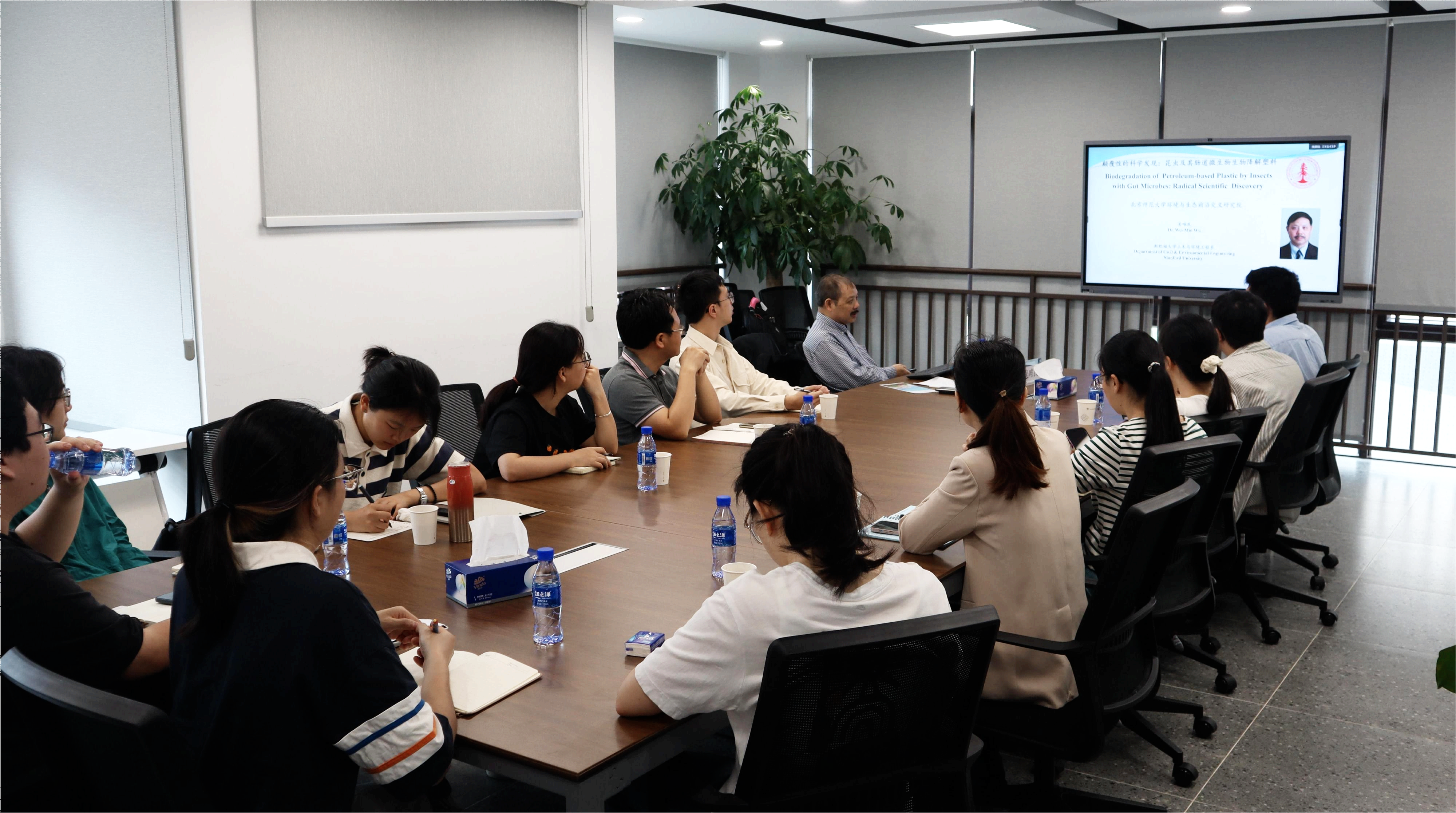
Recently, Dr Wu Weimin, Senior Research Engineer at the Department of Civil and Environmental Engineering, Standford University, visited the Institute and conducted academic exchanges with the faculty and students. The exchange session was chaired by Professor Ling Li of the Institute.

Dr Wu Weimin provided a structured overview and introduction to the relevant research on microbial plastic degradation. He enumerated the types of microplastics and their applications within the plastics field, explored the harms microplastics pose to the human body, and discussed the issue of microplastic degradation. Dr Wu stated that the process of plastic degradation has profound environmental implications, and that exploring scalable pathways for the biodegradation of plastics and developing biodegradable plastics are of great significance. Insects such as darkling beetles and pyralid moths possess strong capabilities for plastic degradation, thereby laying the groundwork for scalable research into plastic biodegradation. Based on research into biodegradable plastics, such materials are becoming a more environmentally friendly option. According to the degradation time cycle of biodegradable plastics and their adaptability to the environment, it is possible to further develop biodegradable plastics with higher degradation rates.
Attending faculty and students engaged in discussion with Dr Wu Weimin based on their respective research areas.
Guest Biography:
Dr Wu Weimin is a Senior Research Engineer in the Department of Civil and Environmental Engineering at Stanford University, and a Senior Researcher at the William & Cloy Codiga Resource Recovery Center of Stanford University. His research focuses on key scientific and technological issues in the biological treatment and resource recovery of wastewater. He has published 186 SCI-indexed papers, which have been cited over 14,000 times, with an H-index of 69. His research areas have included: anaerobic wastewater and waste treatment environmental biotechnology, environmental microbiology, microbial ecology, water treatment reaction kinetics, methane fermentation for energy recovery from organic matter, bioremediation of groundwater and soil pollution, microbial fuel cells and bioelectrochemical processes, resource recovery from wastewater and solid waste, and the biodegradation of biodegradable and petroleum-based plastics. At present, his primary focus is on research related to biodegradable plastics and pollution from micro- and nanoplastics.




